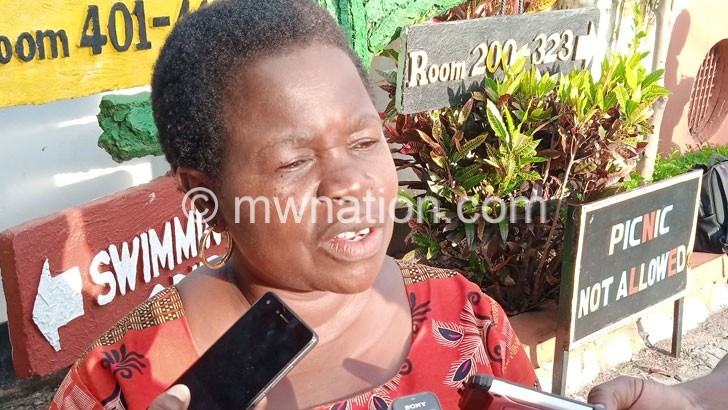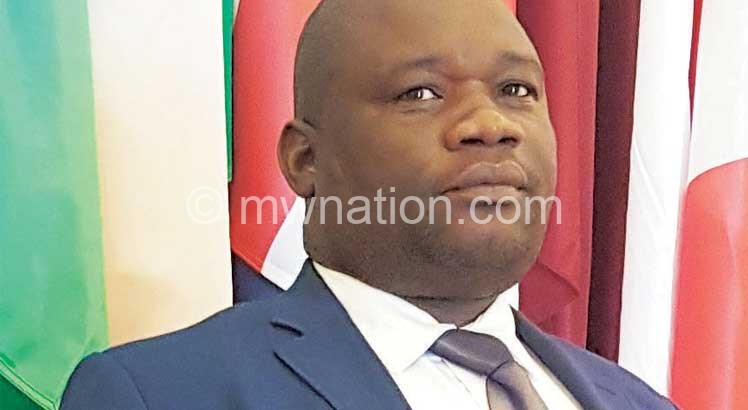Funding woes cripple ACB
Malawi’s anti-graft fight is under threat as the Anti-Corruption Bureau (ACB) is facing erratic funding which has forced officers to use personal resources for official operations.
ACB principal public relations officer Egrita Ndala confirmed in an interview that some officers were using personal money for operations.

In a written response, she said: “This puts officers in a situation where they may proceed to the field before payment is out for the sake of efficiency.
“Besides, there are some operations like court cases which involve other stakeholders and cannot wait for the bureau officers to receive allowances. The officers do that out of commitment to ensure that the bureau operates, if they were to wait for payments, there would be less output at the end of the day.”
Ndala said like any other government agency, the ACB gets its funding from Treasury. She said problems rocking the Integrated Financial Management Information System (Ifmis), the government’s electronic payment platform, have seen the bureau failing to process payments on time.

Sources at the bureau confided in The Nation that investigators and prosecutors were adversely hit by the situation since July last year.
One officer said they are asked to meet their own costs for field trips in terms of food, accommodation and fuel.
Said the officer: “It has become very tough to run operations from our pockets, especially now when we have a huge case load. In my case, I have been spending my own money for field trips and I have not received field allowances for the past three months.”
The Tonse Alliance adminstration led by President Lazarus Chakwera substantially increased funding to the ACB from about K3 billion to about K5 billion in July 2020, a move heralded as a commitment to fight corruption.
Since last year, ACB has been busy, securing convictions and launching several investigations against prominent businesspersons and top government officials in both the former and current administrations.
Bureau sources said besides officers not receiving their monthly airtime allocation for months due to erratic funding, the graft-busting body has had its Internet access disconnected.
“In some cases, fuel service stations refuse to give them fuel due to long-standing unpaid bills forcing them to use personal funds just to sustain operations and have the work done,” said another officer.
In an interview last week, Ministry of Finance spokesperson Williams Banda said funding delays to ACB were largely due to some end-users’ lack of capacity to use the new Ifmis.
He said: “Treasury is doing everything possible to ensure that no service is delayed or disturbed due to Ifmis.
“So far, we are proud that most end-users are becoming more acquainted with the system than at the time it was rolled out. To date, most direct payments such as allowances and salaries are processed with minimal support.”
However, Banda avoided our question on whether Treasury understood the implication of delayed funding to institutions such as ACB.
Ndala agreed that erratic funding to the ACB was linked to Ifmis.
She indicated that once ACB personnel are fully trained on how to process payments in the new system things will improve.
ACB financial challenges come at a time when there is huge public expectation of the bureau after the crackdown on corruption intensified following the election of Chakwera in the court-sanctioned fresh presidential election on June 23 2020.
When ACB officials appeared before the Legal Affairs Committee of Parliament in June 2021 to discuss budget allocation for 2021/2022 financial year, they said the bureau’s registry had over 852 corruption-related complaints to be handled.
Among the cases, 323 cases are under investigation, 329 are complaints and 83 are in court, including the K1.7 billion case of former president Bakili Muluzi’s which has dragged for over 15 years.
There are also 16 cases pending judgement by the courts.
This is not the first time the ACB has been crippled with funding as in 2020 former ACB director general Reyneck Matemba decried poor funding to the bureau at a time when they were investigating the judge bribery case.
He appealed to government to have 30 percent of the bureau’s monthly allocation disbursed in advance for speedy handling of cases.
But Ndala said the proposal hit a snag: “The proposal did not materialise. Though Treasury gave a nod, the Accountant General found that its implementation would be difficult.”
The bureau has also been conducting a joint investigation with the British National Crime Agency (NCA) of businessperson Zuneth Sattar, a British national with permanent residence permit in Malawi.
Sattar is alleged to have bribed politically-exposed people in Malawi to gain public contracts. Two arrests have so far been made in connection with his contracts.
The arrests involve Minister of Lands Kezzie Msukwa and Sattar’s business associate Ashok Nair. Msukwa has since obtained an injunction that put aside his arrest.
The two are alleged to have been involved in land deals which Msukwa is said to have corruptly benefitted from Sattar.
Apart from Sattar, another businessperson under ACB radar is Abdul Karim Batatawala.
The ACB is also prosecuting former minister of Energy Newton Kambala, former presidential aide Chris Chaima Banda and Alliance for Democracy president Enoch Chihana in connection with fuel import contracts at the National Oil Company of Malawi.






One Comment